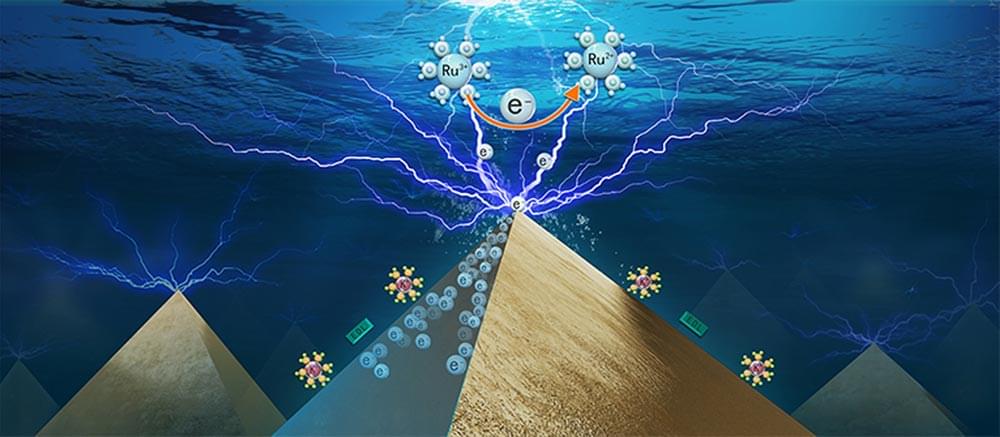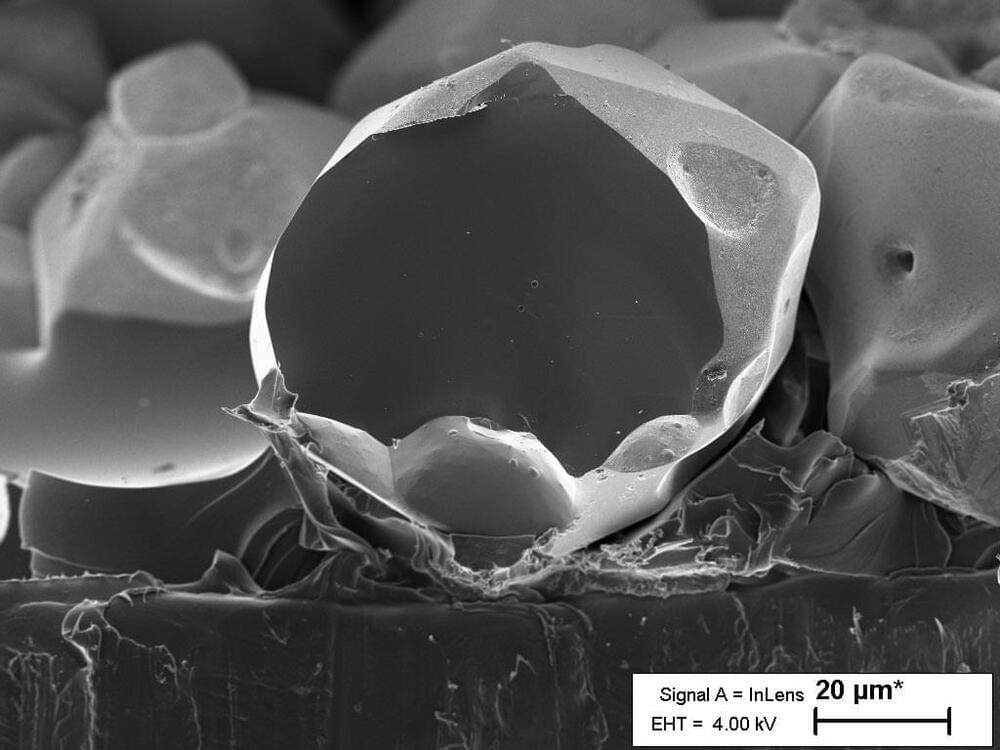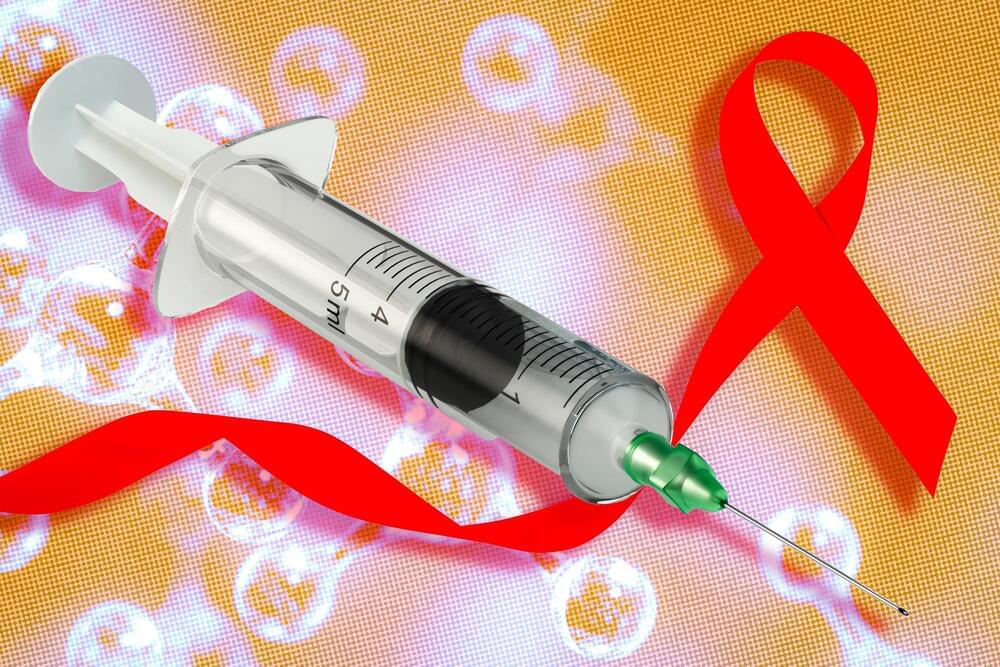China has announced a plan to create new forests covering 35,000 sq km (14,000 sq mi), an area larger than the country of Belgium, every year for the next five years.


Combining knowledge of chemistry, physics, biology, and engineering, scientists from McGill University develop a biomaterial tough enough to repair the heart, muscles, and vocal cords, representing a major advance in regenerative medicine.
“People recovering from heart damage often face a long and tricky journey. Healing is challenging because of the constant movement tissues must withstand as the heart beats. The same is true for vocal cords. Until now there was no injectable material strong enough for the job,” says Guangyu Bao, a PhD candidate in the Department of Mechanical Engineering at McGill University.

The involvement between electron transfer (ET) and catalytic reaction at electrocatalyst surface makes electrochemical process challenging to understand and control. How to experimentally determine ET process occurring at nanoscale is important to understand the overall electrochemical reaction process at active sites.
Recently, a research group led by Prof. LI Can and Prof. FAN Fengtao from the Dalian Institute of Chemical Physics (DICP) of the Chinese Academy of Sciences (CAS) captured the electron transfer imaging in electrocatalysis process.
This study was recently published in the journal Nano Letters.

This crystal of iron pyrite, just four hundredths of a millimeter in size, could function as the light absorbing layer of a tiny solar cell – potentially a promising future source of power on the Moon.
Working with Estonia’s Tallinn University of Technology (TalTech), ESA has studied the production of sandpaper-like rolls of such microcrystals as the basis of monograin-layer solar cells.
“We’re looking at these microcrystals in the context of future lunar settlement,” explains ESA advanced manufacturing engineer Advenit Makaya. “Future Moon bases will need to ‘live off the land’ in order to be sustainable, and the iron and sulfur needed to produce pyrite could be retrieved from the lunar surface.”

Prof Stuart Russell, founder of the Center for Human-Compatible Artificial Intelligence, at the University of California, Berkeley, is giving this year’s Reith Lectures.
He said: Because I think it’s really important and really urgent.
And the reason it’s urgent is because the weapons that we have been talking about for the last six years or seven years are now starting to be manufactured and sold.
So in 2017, for example, we produced a movie called Slaughterbots about a small quadcopter about 3in [8cm] in diameter that carries an explosive charge and can kill people by getting close enough to them to blow up.
We showed this first at diplomatic meetings in Geneva and I remember the Russian ambassador basically sneering and sniffing and saying: “Well, you know, this is just science fiction, we don’t have to worry about these things for 25 or 30 years.”
I explained what my robotics colleagues had said, which is that no, they could put a weapon like this together in a few months with a few graduate students.
And in the following month, so three weeks later, the Turkish manufacturer STM [Savunma Teknolojileri Mühendislik ve Ticaret AŞ] actually announced the Kargu drone, which is basically a slightly larger version of the Slaughterbot.
Science isn’t all lab coats and test tubes. Beautiful visuals can engage people—especially students—and inspire them to learn about science more broadly.
Scientists have often invited the public to see what they see, using everything from engraved woodblocks to electron microscopes to explore the complexity of the scientific enterprise and the beauty of life. Sharing these visions through illustrations, photography, and videos has allowed laypeople to explore a range of discoveries, from new bird species to the inner workings of the human cell.
As a neuroscience and bioscience researcher, I know that scientists are sometimes pigeonholed as white lab coats obsessed with charts and graphs. What that stereotype misses is their passion for science as a mode of discovery. That’s why scientists frequently turn to awe-inducing visualizations as a way to explain the unexplainable.
The BioArt Scientific Image and Video Competition, administered by the Federation of American Societies for Experimental Biology images with the public that are rarely seen outside the laboratory in order to introduce and educate laypeople about the wonder often associated with biological research. BioArt and similar contests reflect the lengthy history of using imagery to elucidate science.
A total solar eclipse occurred early this morning across one of our planet’s most remote and beautiful regions. It was, as always, utterly surreal.
For some, the 1 minute 30 seconds (or so) event at around 07:00 UTC was marred by low and high cloud in the Scotia Sea. There were 14 cruise ships in the 290 miles-wide path of totality, but so far there have been no reports of clear views.
While a view of the Sun’s corona–revealed only for the precious few moments of totality–is the big prize for eclipse-chasers, the immense scale of the event is always incredible to be a part of.
“We wound up much further to the north of where everyone else appeared to go around the South Orkney Islands,” said says Tyler Nordgren, a space artist and former astronomy educator who will be lecturing for Betchart Expeditions on the M/V Hondius. “But in the end, even though we had hints of sunlight at one point, all we experienced was the sudden rush of darkness as the moon’s shadow passed overhead.”
Full Story:

A common strategy to make vaccines more powerful is to deliver them along with an adjuvant — a compound that stimulates the immune system to produce a stronger response.
Researchers from MIT, the La Jolla Institute for Immunology, and other institutions have now designed a new nanoparticle adjuvant that may be more potent than others now in use. Studies in mice showed that it significantly improved antibody production following vaccination against HIV, diphtheria, and influenza.
“We started looking at this particular formulation and found that it was incredibly potent, better than almost anything else we had tried,” says Darrell Irvine, the Underwood-Prescott Professor with appointments in MIT’s departments of Biological Engineering and Materials Science and Engineering; an associate director of MIT’s Koch Institute for Integrative Cancer Research; and a member of the Ragon Institute of MGH, MIT, and Harvard.
Company doing some impressive work on robotic Arms and Hands, definitely worth a look for robotics people.
The Atom Touch artificial arm is capable of full human range of motion, restores a basic sense of touch, and is non-invasively mind-controlled. Coming 2023.
Learn Artificial Intelligence with these online courses
#artificialintelligence … See more.
Are you looking for the Best Certification Courses for Artificial Intelligence? If yes, then your search will end after reading this article. In this article, I will discuss the 10 Best Certification Courses for Artificial Intelligence. So, give your few minutes to this article and find out the Best AI Certification Course for you.
Artificial Intelligence is changing our lives. We can see the evolution of AI almost in every industry like finance, healthcare, education, transportation, and more. The best examples of Artificial Intelligence are Self-Driven Cars, Google Assistant/Siri/Alexa, Product Recommendations, Chatbots, Facebook Image Recognition, GPS, Pandora, BLUE RIVER, and Plantix.